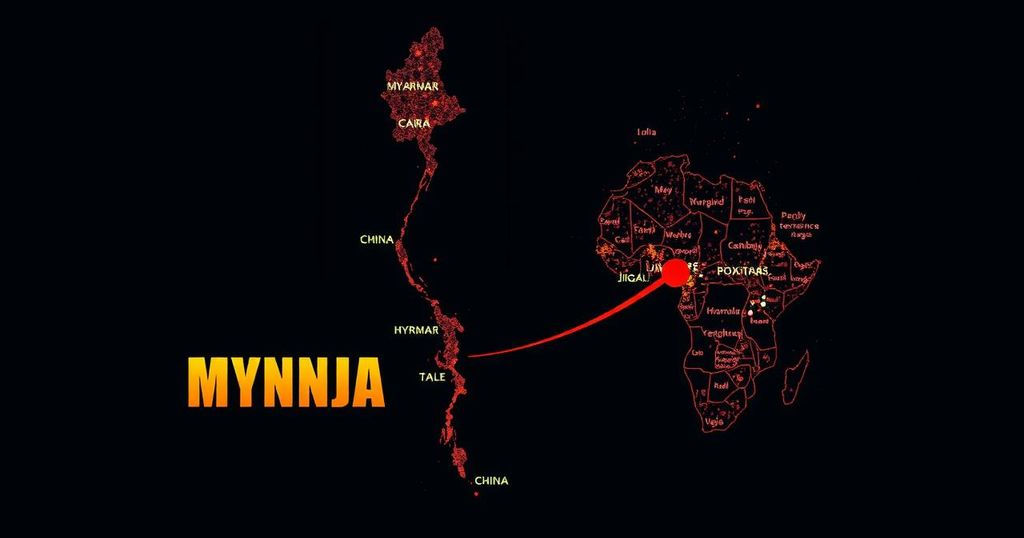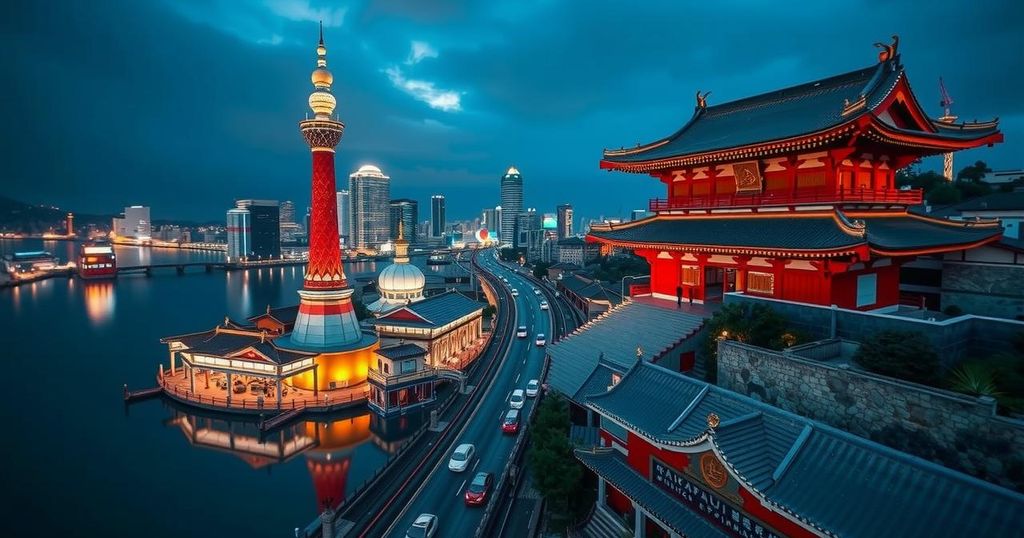Myanmar’s Civil War Disrupts Vital Trade Route to China
Summary
Myanmar’s civil war poses a severe threat to the China-Myanmar Economic Corridor, undermining trade relations that China has carefully fostered. Tensions have escalated since the military coup in 2021, leading to border fortifications and severely restricting economic activities in towns like Ruili. The ongoing violence not only affects investment prospects but also deeply impacts the livelihoods of individuals dependent on cross-border trade and labor.
The civil war in Myanmar is posing a significant threat to a key trade route established by China, which has heavily invested in this corridor connecting its landlocked southeastern region to the Indian Ocean. Initially, the border area, particularly Yinjing in Yunnan province, was characterized by a friendly economic partnership with Myanmar, symbolized by simple bamboo fences. However, the escalated conflict following the military coup in 2021 has altered this landscape dramatically. The once smooth border is now fortified by high metal fences and surveillance as tensions rise due to the ongoing fighting within Myanmar. China’s substantial investments, aimed at enhancing trade through the China-Myanmar Economic Corridor, are at risk as the region continues to be embroiled in violence between Myanmar’s military regime and various ethnic rebel groups. Despite Beijing’s influence over both the junta and the rebels, a ceasefire negotiated earlier has failed, leading to military exercises and diplomatic visits, including one from Foreign Minister Wang Yi, who reportedly delivered stern warnings to the governing authorities in Myanmar. Shan State, which borders China, has been the focal point of conflict, significantly impacting local economies and the livelihoods of those residing in border towns such as Ruili. Vendors express their struggles, with reports of individuals crossing the border for meager income just to support their families amidst rising costs and food scarcity caused by the war. Individuals like Li Mianzhen, who operates a stall selling Myanmar products, illustrate the humanitarian crisis, with many seeking refuge in China as violence escalates in their homeland. Compounding these challenges, labor from Myanmar has been restricted, undermining local businesses in Ruili that rely on workers across the border. Overall, the ongoing instability presents a dual threat to both economies—China’s investment interests and the everyday lives of people on both sides of the border—emphasizing the urgent need for a resolution to the escalating conflict in Myanmar.
The article discusses the significant challenges posed by Myanmar’s civil war on a critical trade corridor that connects China with the Indian Ocean. The trade route, part of the China-Myanmar Economic Corridor, had initially signaled a prosperous relationship between the two countries. However, following a military coup in Myanmar in 2021, the situation deteriorated, with rising violence essentially severing economic ties and disrupting border trade. This corridor is essential for China’s connectivity and resource acquisition, making the stakes particularly high for Beijing as it navigates the intricacies of the conflict in neighboring Myanmar.
In conclusion, Myanmar’s civil war is not only a humanitarian crisis but also a critical threat to China’s economic interests in the region. The failure of ceasefires and rising violence jeopardize the investments and objectives of the China-Myanmar Economic Corridor. As border towns like Ruili grapple with rising desperation and economic stagnation, the interplay between conflict management and regional diplomacy becomes increasingly crucial for both nations.
Original Source: www.bbc.com








Post Comment